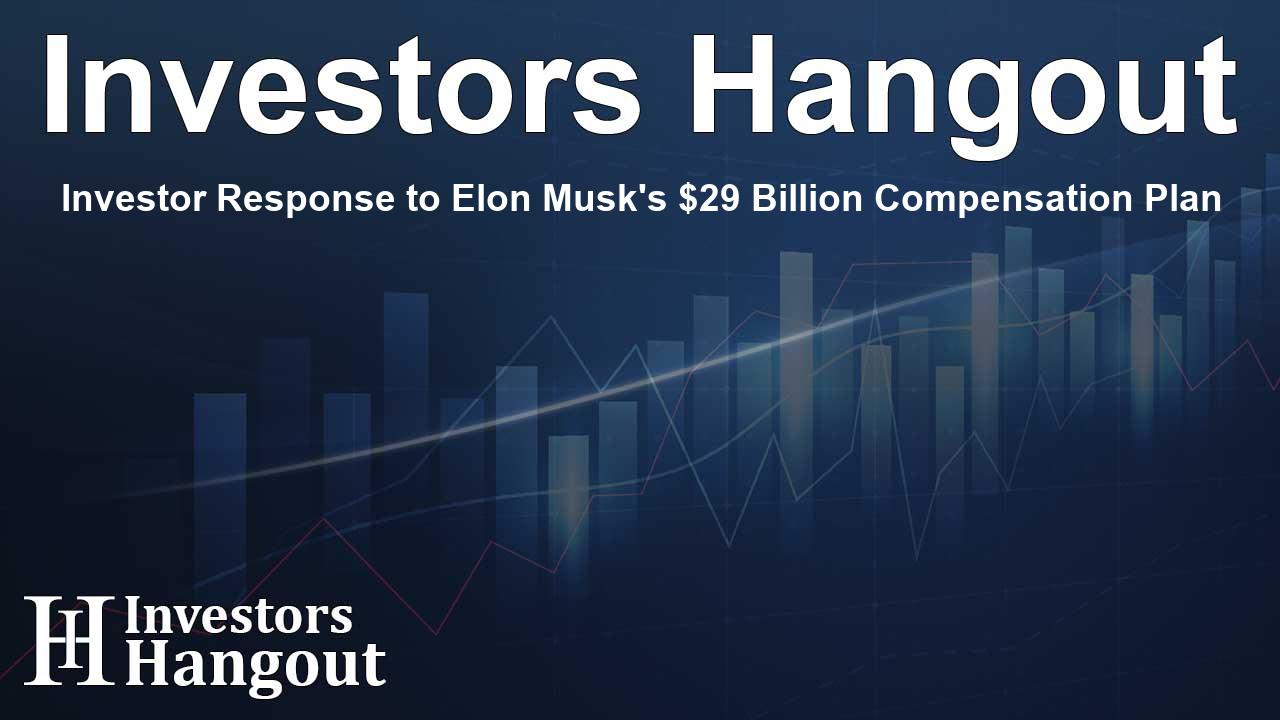Investor Response to Elon Musk's $29 Billion Compensation Plan

Investor Concerns About Musk's Substantial Pay Package
The SOC Investment Group has initiated a formal investigation request with NASDAQ concerning Tesla Inc. and its CEO, Elon Musk, particularly focusing on the recent decision to grant him a staggering $29 billion in equity compensation. This sizable grant has raised several eyebrows among shareholders, leading to fears of non-compliance with executive compensation regulations.
Understanding the Problems Surrounding Musk's New Compensation Package
The SOC Group, formerly known as CtW Investment Group, represents a coalition of union-backed pension funds, many of which own shares in Tesla. They have voiced significant concerns regarding the transparency of Elon Musk's new compensation arrangement. Their letter addressed to NASDAQ questions the legitimacy of Tesla’s adherence to executive pay protocols, stipulating that a shareholder vote should have been mandated due to the magnitude of the changes involved in Musk’s compensation structure.
The Complexity of Musk's Pay Structure
The new compensation package, which includes vesting conditions tied to the second anniversary of the grant, does impose certain limits. Notably, Musk cannot sell any shares that have vested for a period of five years. However, critics argue that it lacks rigorous performance metrics, which is a critical component for any executive's pay structure, especially one of this magnitude.
Impacts of SOC Group's Actions on CEO Compensation Oversight
Tejal Patel, the executive director at the SOC Investment Group, elaborated on the situation, indicating that previous disclosures indicated the company did not intend to encompass Musk within their original compensation strategies. These revelations point to a trend that the SOC Group has previously highlighted—serious questions about board independence and the general governance practices at Tesla, including transparency in executive pay.
Musk's Pay Package Controversies Intensify
This situation doesn’t stand in isolation. It connects to broader themes of corporate governance and financial oversight regarding executive compensation in publicly traded companies. In early August, several market analysts expressed positivity over Musk's new pay plan, claiming that it could stabilize his role till 2030 while potentially alleviating concerns that have been hindering Tesla's stock price. However, most echoed the sentiment that more concrete performance benchmarks were required to accompany such a substantial compensation plan.
Recent legal actions also have implications for Musk's financial arrangements. For instance, the Delaware Supreme Court is set to deliberate on Musk's previous $56 billion compensation package, which had been legally challenged. Advocates argue that ongoing oversight is crucial in preventing any circumvention of necessary governance practices.
The Ongoing Examination of Pay Structures at Tesla
The SOC Investment Group's historical engagement with Tesla outlines a well-documented pattern of opposition to excessive pay packages. Their consistent calls for transparency and accountability highlight a growing concern among shareholders about corporate governance standards. As discussions surrounding executive compensation evolve, stakeholders are eager to see how Tesla responds to these investigative requests and whether it highlights deficiencies in their current practices.
Performance Metrics in Executive Compensation
The lack of performance-driven incentives in Musk's compensation package raises questions about the integrity of executive pay structures. As public companies face increasing pressure from shareholders and market analysts looking for accountability and transparency in governance practices, they must enhance their strategies to ensure that these executive pay packages align with shareholder interests and overall company performance.
Frequently Asked Questions
What is the main concern regarding Elon Musk's compensation?
The primary concern is that the substantial $29 billion compensation package was granted without proper shareholder approval, potentially violating NASDAQ regulations.
Who is the SOC Investment Group?
The SOC Investment Group, previously known as CtW Investment Group, represents union-backed pension funds and advocates for better corporate governance and executive accountability.
What are the stipulations of Musk’s new compensation package?
Musk's pay package includes restrictions such as vesting shares only after two years and not being able to sell vested shares for five years, but lacks strict performance requirements.
What criticisms has the SOC Group made regarding Tesla’s governance?
The SOC Group has raised concerns about the independence of Tesla's board and the transparency of executive compensation practices.
How does this controversy reflect on Tesla's governance?
This situation emphasizes the necessity for strict adherence to governance and transparency protocols, ensuring that executive compensation aligns with stakeholder interests.
About The Author
Contact Dylan Bailey privately here. Or send an email with ATTN: Dylan Bailey as the subject to contact@investorshangout.com.
About Investors Hangout
Investors Hangout is a leading online stock forum for financial discussion and learning, offering a wide range of free tools and resources. It draws in traders of all levels, who exchange market knowledge, investigate trading tactics, and keep an eye on industry developments in real time. Featuring financial articles, stock message boards, quotes, charts, company profiles, and live news updates. Through cooperative learning and a wealth of informational resources, it helps users from novices creating their first portfolios to experts honing their techniques. Join Investors Hangout today: https://investorshangout.com/
The content of this article is based on factual, publicly available information and does not represent legal, financial, or investment advice. Investors Hangout does not offer financial advice, and the author is not a licensed financial advisor. Consult a qualified advisor before making any financial or investment decisions based on this article. This article should not be considered advice to purchase, sell, or hold any securities or other investments. If any of the material provided here is inaccurate, please contact us for corrections.
